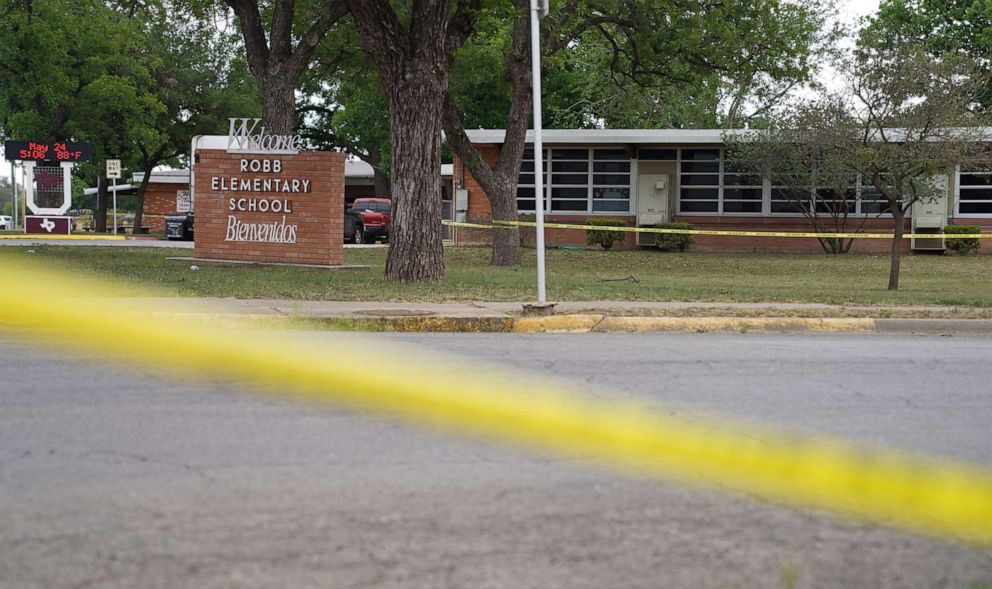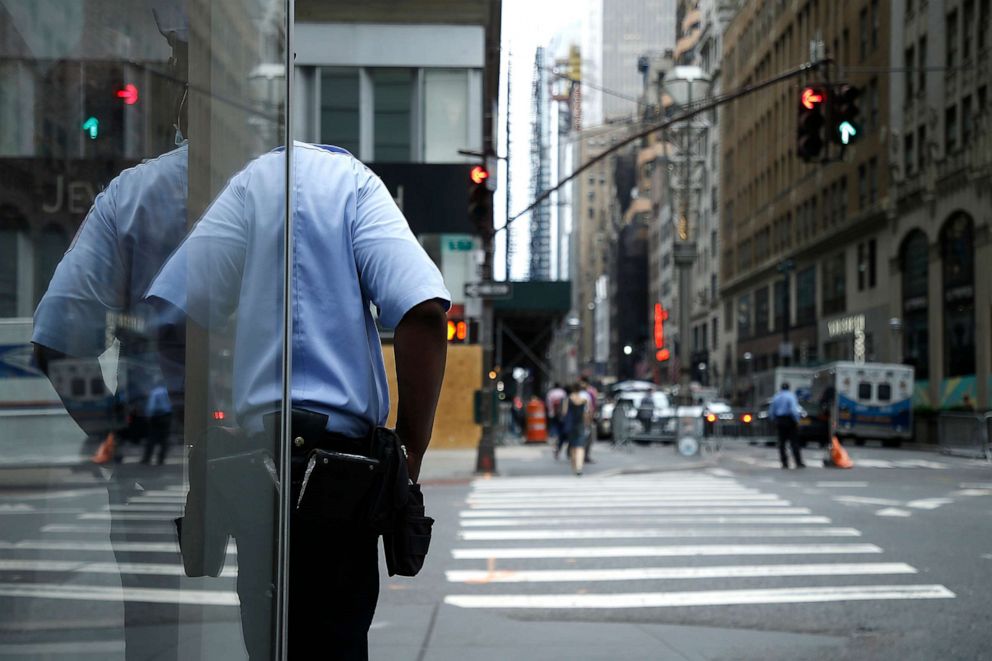Politicians offer solutions to stop gun violence. Here's what experts think
Gun control is the most effective solution but others can help, experts said.
A mass shooting on Tuesday at an elementary school in Uvalde, Texas — which left 21 dead, including 19 children and two teachers — has renewed fierce debate over how to prevent such a tragedy from happening again.
As in the aftermath of past mass shootings, elected officials appear divided over gun control reform. President Joe Biden last week urged Congress to "keep weapons of war off our streets,” drawing support from many Democratic lawmakers on Capitol Hill. But some Republican members of Congress, like Texas Sen. Ted Cruz, have dismissed the need to dramatically bolster gun laws since reform could prevent "law-abiding citizens" from acquiring guns, they argue.
Despite the apparent disagreement, a bipartisan group of senators is discussing potential legislation that could include expanded background checks and red flag laws that keep guns out of the hands of individuals who authorities determine may pose a threat.
Meanwhile, some Republicans proposed alternative solutions such as armed guards and other safety protections at public venues as well as expanded mental health services. Oklahoma Sen. James Lankford, a Republican, took a wider view, telling reporters that attacks like the one in Uvalde arise from “cultural issues” that legislation has “zero chance” to fix.
The proposals drew rebuke from some Democrats, who accused Republicans of deflecting concerns over the availability of firearms.
Evidence shows that gun control laws offer the most direct and immediate solution for addressing mass shootings, gun violence experts told ABC News. They affirmed the value of a broader approach that encompasses mental health services and a shift in cultural mores.
“From a purely rational, problem-solving perspective, all things should be on the table, including stronger gun control,” Daniel Webster, a professor at the Johns Hopkins University Bloomberg School of Public Health, told ABC News.
The states with the lowest gun death rates are those with the strictest gun laws, according to research by the Johns Hopkins Center for Gun Violence Solutions. In particular, the most effective reduction of deadly mass shootings results from policies that require licensing for gun buyers and restrict large-capacity magazines, a 2020 study co-authored by Webster found.

He and other experts have criticized various proposals at limiting mass shootings at schools, including armed guards, narrow and fortified entryways and training drills.
“These solutions are all oriented toward an acceptance that somebody with a gun is going to come into your school, so let’s be prepared,” he said.
In the days following an attack at Marjory Stoneman Douglas High School in Parkland, Florida, in 2018, then-President Donald Trump suggested arming teachers. In 2012, in the aftermath of the mass shooting at Sandy Hook Elementary in Newtown, Connecticut, then-National Rifle Association Vice President Wayne LaPierre said, “The only thing that stops a bad guy with a gun is a good guy with a gun.”
Mike Lawlor, an associate professor of criminal justice at the University of New Haven in Connecticut and a former Democratic state lawmaker, told ABC News he questions the effectiveness of an armed officer or teacher in stopping mass shootings.
“If somebody shows up ready, willing and able to get themselves killed and they’ve got an AR-15 and in some cases body armor, what is that guy going to do?” Lawlor said.
School security measures put in place over roughly the last two decades have failed to show empirical evidence that they reduce gun violence in schools, according to a 2019 study published by researchers in the journal Violence and Gender.
On Wednesday, Sen. Cruz said in an appearance on Fox News that schools should address mass shootings by limiting entry and exit to a single door, where armed police can stand guard against an attack.
The proposed solution of a single door raises fire safety concerns, said Webster. It also fails to take an expansive or systemic approach to the causes of mass shootings, he added.
Webster referenced a mass shooting last week at a supermarket in Buffalo, New York – which left 10 dead, all of whom were Black, and three others wounded.
“This can happen in a supermarket or a church. We can go on and on and on about the settings,” he said. “People who want to protect the status quo, make this as narrow a problem as possible and develop the most narrow solution as possible.”
Another proposal that has gained momentum in the aftermath of the shooting in Uvalde is an expansion of mental health services. Texas Gov. Greg Abbott this week attributed the mass shooting in Uvalde to mental health issues, and he vowed to boost mental health programs.
Mental health advocates criticized Abbott for taking resources away from agencies that oversee mental health programs.
Experts said an expansion of mental health services could help address mass shootings, especially among young people dealing with mental health challenges amid the pandemic.
“Adolescents in particular are really struggling from a mental health standpoint, and they need a lot more than they’re getting,” Webster said. “Those public health approaches can go a long way in preventing these horrible tragedies.”
A significant portion of the adult and adolescent populations have experienced mental health issues. Roughly 49.5% of adolescents have faced a mental health disorder at some point in their lives, the National Institute for Mental Health found in a 2020 survey. Twenty-one percent of the adult population experienced some form of mental illness in 2020, the survey found. Advocates have said that people who suffer from mental health issues are more likely to be victims than perpetrators.
Lawlor, the professor at the University of New Haven, said mental health programs should take up a proactive approach that helps identify students at risk of committing violence.

“It’s one thing to have services available but someone has to plug somebody into it,” he said.
Another view of gun violence treats the problem as the symptom of a broader cultural issue that cannot be addressed through legislation, as put forward by Lankford, the Republican senator from Oklahoma.
Experts acknowledged that the problem owes in part to cultural values, particularly the U.S. gun culture. Lawlor attributed the ongoing popularity of gun culture and the prevalence of guns in part to marketing from gunmakers.
“It’s a historical culture of the U.S. — cowboys, the Wild West and it’s in the Constitution — but this phenomenon of flooding the country with guns deliberately and aggressively is relatively recent,” he added.
Ron Avi Astor, a professor of social welfare at University of California, Los Angeles who specializes in school violence, told ABC News the divisive culture around guns impedes agreement on tangible solutions, including gun regulations.
“Public health is first and foremost about education,” Astor said. “I don’t think we need to approach it as Second Amendment or non-Second Amendment — that’s a rabbit hole that leads us nowhere.”
He added, “I would like us to find common ground — Democrats, Republicans, gun owners, non-gun owners — to at very minimum use guns responsibly with the same regulations as other hazardous materials and things in people’s houses.”




